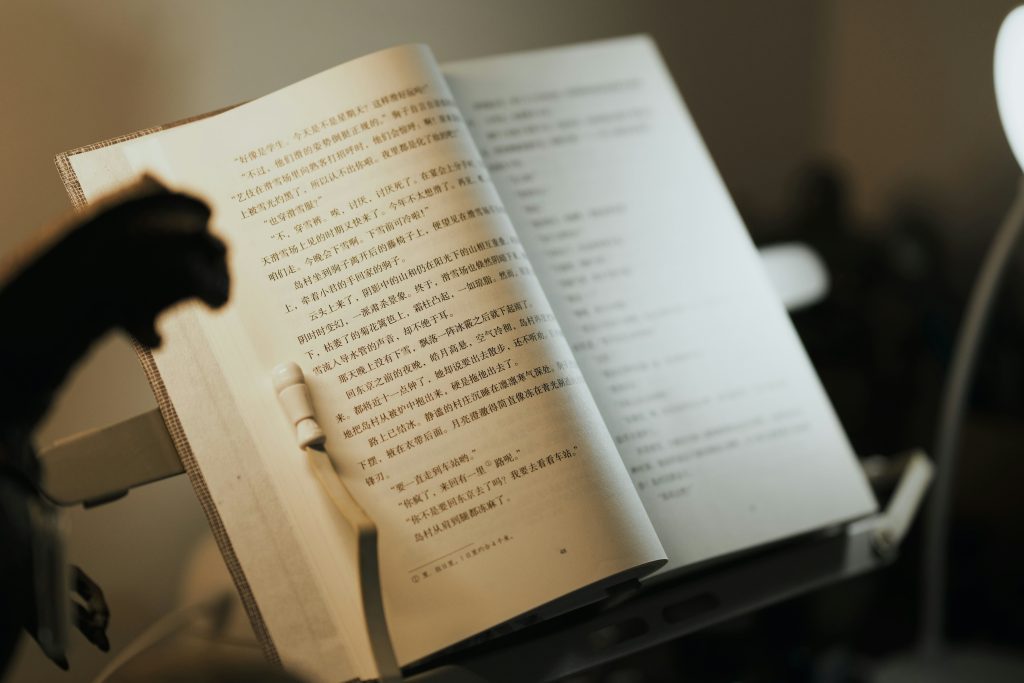
29 Sep Genre-Specific Writing Workshops and Training Sessions for Aspiring Authors
INTRODUCTION
Genre-specific writing workshops are specialized training programs designed to help authors focus on the unique conventions, styles, and storytelling techniques of particular literary genres. Unlike general writing courses, which cover broad elements of craft, these workshops emphasize targeted skill development that aligns with the expectations of niche audiences. For aspiring authors, the ability to master genre-specific elements can make a significant difference when entering a competitive publishing market. By addressing both creative and commercial demands, these workshops accelerate the process of developing strong, market-ready manuscripts.
Core Benefits of Genre-Specific Workshops
One of the greatest benefits of attending a genre-specific workshop is the mastery of conventions unique to a particular field of writing. For instance, fantasy and science fiction writers are guided through the intricacies of world-building and speculative systems, while mystery authors are trained to weave suspense, plant red herrings, and deliver compelling twists. These workshops ensure writers learn how to innovate while staying within the boundaries readers expect.
Another major advantage lies in targeted skill development. Romance writers, for example, can refine dialogue that captures emotional chemistry, while horror authors practice building atmospheric tension. With hands-on exercises and constructive critiques, participants sharpen their abilities in ways directly applicable to their chosen genres.
Industry insight is another key feature. Instructors often provide guidance on current market trends, publisher interests, and audience demographics. This knowledge helps writers position their work strategically for better reception in competitive genres. Additionally, the collaborative nature of these programs fosters a sense of community. Writers connect with peers, mentors, and professionals who share similar genre interests, creating networks that can lead to lasting partnerships and opportunities.
Types of Genre-Specific Workshops and Training Formats
Genre-specific training is available in a variety of formats, each offering unique benefits depending on an author’s needs. Intensive retreats provide immersive, multi-day experiences where writers can focus deeply on their craft without distractions. Online courses offer flexibility, with video lessons, assignments, and peer critiques accessible from anywhere. Many universities and colleges also offer semester-long creative writing classes with a genre focus, while writing conferences often include genre-specific panels and workshops as part of their programming.
Different training approaches are also available. Some workshops are lecture-based, focusing on the history, theory, and conventions of a genre. Others take a workshop-centric approach, where participants exchange critiques and receive feedback tailored to genre expectations. Hybrid models combine elements of both, incorporating lectures, writing exercises, and one-on-one mentorship for a more comprehensive experience.
Key Genres Covered in Specialized Workshops
Workshops often target popular fiction genres, such as fantasy and science fiction, which emphasize imaginative world-building and speculative systems. Mystery and thriller workshops train authors in techniques of suspense, procedural accuracy, and creating intricate puzzles for readers. Romance-focused programs delve into character chemistry, emotional arcs, and the use—or subversion—of beloved tropes.
Literary and nonfiction genres also benefit from specialized workshops. Literary fiction courses encourage stylistic experimentation and thematic depth, while memoir and creative nonfiction workshops help writers shape authentic voices and navigate ethical storytelling. In recent years, emerging genres such as climate fiction (cli-fi), Afrofuturism, and hybrid romance-comedy adaptations have also gained recognition, offering new creative opportunities for aspiring authors.
Selecting the Right Workshop
Choosing the right workshop depends on an author’s personal goals and career stage. Beginners may seek general introductions to their chosen genre, while advanced writers might look for programs that address specific weaknesses, such as pacing or dialogue. Aligning the workshop’s focus with individual objectives ensures the training is both relevant and effective.
Evaluating the quality of a workshop is equally important. Authors should consider the credentials of instructors—ideally published authors or editors with recognized expertise in the genre. A strong curriculum balances theory, practice, and constructive feedback, while testimonials and alumni success stories can indicate positive outcomes. Practical factors, such as cost, class size, duration, and accessibility (online versus in-person), should also be weighed when making a decision.
Maximizing Workshop Outcomes
Preparation plays a vital role in maximizing workshop benefits. Authors can begin by familiarizing themselves with key conventions in their chosen genre and setting specific goals, such as improving world-building or mastering suspense.
During the workshop, active participation is essential. Writers should contribute to critiques, ask targeted questions, and apply feedback with an open mind. After the program, applying newly learned techniques to ongoing projects ensures that the lessons stick. Many writers also continue growth by joining genre-specific writing groups, which help sustain momentum beyond the formal workshop.
Challenges and Considerations
While genre-specific workshops provide valuable training, they also come with certain challenges. Over-specialization can limit a writer’s flexibility if they focus too narrowly on one genre at the expense of overall craft. Accessibility can also be a barrier, as some programs are costly or limited by location. Additionally, quality can vary widely, and authors must carefully research to avoid investing in programs that lack professional standards.
CONCLUSION
Genre-specific writing workshops provide aspiring authors with targeted tools to refine their craft, master conventions, and position their work effectively within the publishing industry. As demand for niche training continues to grow, these workshops are becoming an essential step for writers seeking to build strong, genre-appropriate manuscripts. For those serious about developing their voice within a chosen genre, investing in specialized training offers not just education but also the chance to connect with communities and professionals who can help shape a successful writing career.
KEY TAKEAWAYS
- Genre-specific workshops build targeted expertise: Unlike general writing courses, these programs allow authors to master the conventions, techniques, and styles unique to their chosen genre—whether it’s world-building in fantasy, suspense in mystery, or emotional chemistry in romance. This specialized focus helps writers produce manuscripts that resonate with niche audiences and meet industry expectations.
- Hands-on skill development accelerates growth: Through exercises, critiques, and mentorship, writers refine practical skills directly applicable to their craft. For example, horror writers learn how to sustain tension, while nonfiction authors practice creating authentic voices and navigating ethical storytelling challenges.
- Industry insights strengthen market readiness: Many workshops include guidance on publishing trends, reader demographics, and genre-specific market demands. This knowledge equips authors with strategies to position their work for better reception, submission, and eventual publication.
- Flexible training formats fit different needs: Options range from immersive multi-day retreats that remove distractions, to flexible online courses with peer feedback, to structured university programs or conference-based sessions. Authors can choose formats that best align with their schedules, goals, and budgets.
- Coverage across multiple genres: Workshops span popular genres like fantasy, sci-fi, mystery, thriller, romance, and horror, as well as literary fiction and creative nonfiction. Emerging fields such as climate fiction (cli-fi), Afrofuturism, and hybrid genre blends are increasingly included, giving writers opportunities to explore innovative storytelling spaces.
- Choosing the right program is crucial: Authors should carefully evaluate instructor credentials, curriculum design, class size, and participant feedback before enrolling. Aligning a workshop with personal writing goals—whether improving dialogue, pacing, or narrative depth—ensures the experience is both relevant and impactful.
- Maximizing outcomes requires preparation and follow-up: Writers benefit most when they set clear goals before attending, actively engage in critiques during the workshop, and immediately apply new techniques to ongoing projects. Continued practice, plus joining writing groups or mentorship circles, helps sustain growth after the program ends.
- Be mindful of challenges and limitations: While valuable, workshops can be costly or geographically inaccessible, and not all programs meet professional standards. Over-specialization is another risk, as focusing too narrowly on one genre may limit creative flexibility. Careful research and balance are essential
FAQ
How do genre-specific writing workshops differ from general writing courses?
Genre-specific workshops focus on the unique conventions, themes, and expectations of particular genres such as fantasy, romance, or mystery. Unlike general courses, which cover broad storytelling skills, these workshops provide targeted training that helps writers master genre-specific techniques while aligning their work with audience and market demands.
What types of formats are available for genre-specific writing workshops?
Writers can choose from immersive retreats, online courses, university classes, or conference-based sessions. Some workshops emphasize lectures and genre theory, while others prioritize peer critiques and hands-on exercises. Hybrid models combine mentorship, writing practice, and feedback, offering flexibility to suit different goals, schedules, and levels of experience.
How can aspiring authors get the most out of a genre-specific workshop?
Preparation and engagement are key. Authors should set clear goals before attending, actively participate in discussions and critiques, and apply feedback to their projects. Following the workshop, joining writing groups or continuing practice within the chosen genre ensures lasting growth and sustainable improvement in craft.
Promoting a book doesn’t have to be overwhelming—social media offers authors direct access to their target audience. This article provides proven strategies for using platforms like Facebook, Instagram, and Twitter to maximize visibility and generate excitement around your new work.



